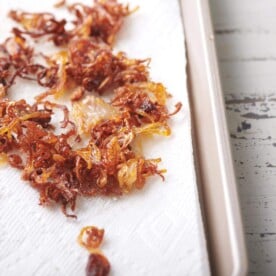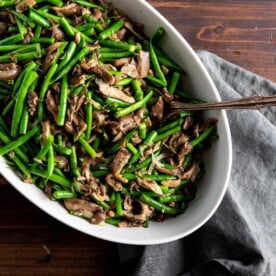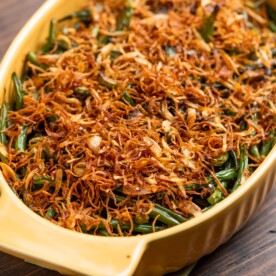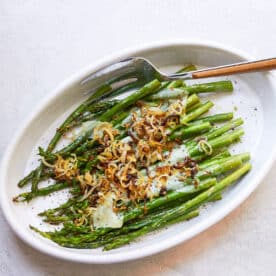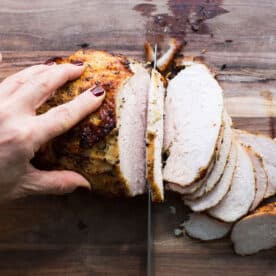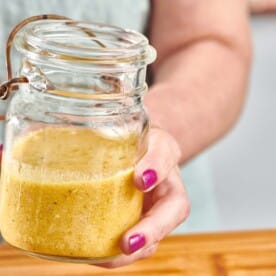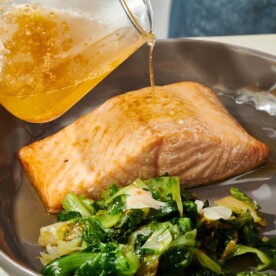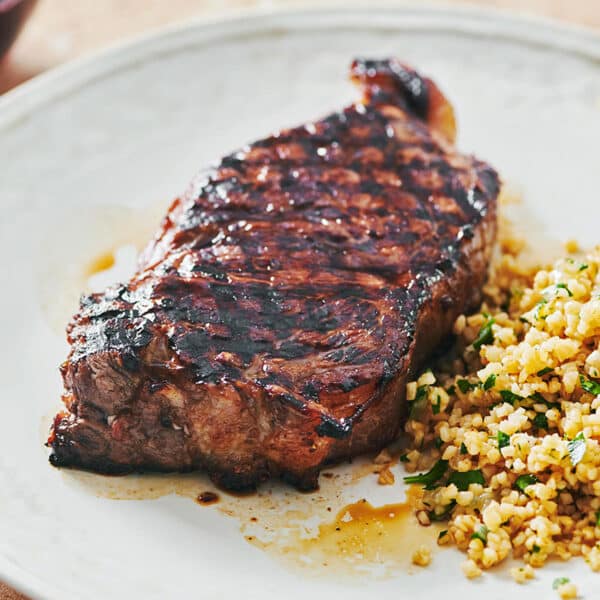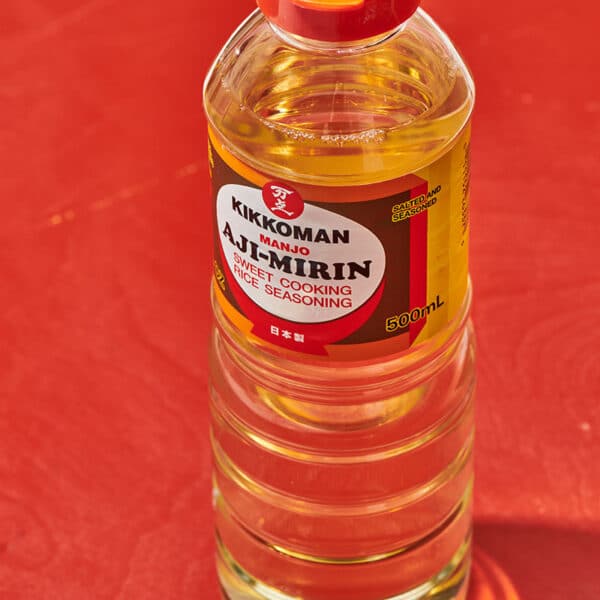How to Cook With Shallots
on Aug 25, 2020, Updated Nov 30, 2024
This post may contain affiliate links. Please read our disclosure policy.
Shallots and potatoes are perfect for a roast chicken. Add a salad, and you have the perfect meal.
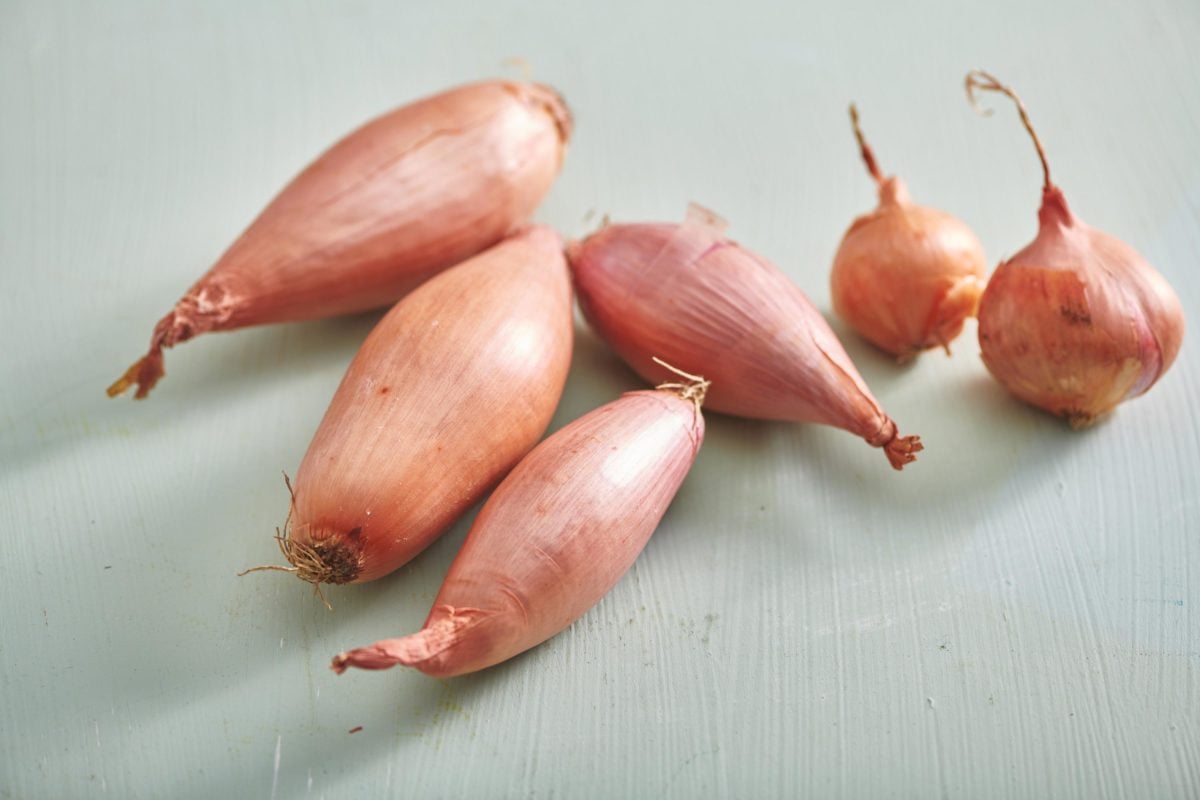
Shallots are one of my absolute favorite members of the onion family and an ingredient that I like to have in the kitchen at all times. They are extra special in that they are a bit sweeter than regular onions and offer a wonderful (but not overwhelming) onion flavor to whatever they touch.
Shallots are incredible for sautéing and stir-frying and can also be braised or roasted whole or in chunks. Thin slices can be added to salads. And I almost never make a vinaigrette salad dressing recipe without some minced shallot (or at least some member of the onion family). Shallots make appearances in cuisines as varied as French, Asian, and Middle Eastern.
By signing up, you agree to our Privacy Policy.
Read on to discover more about this sweet, cute neighbor of the common onion. I’ve also collected some go-to recipes that use shallots, including a recipe for a tempting, lemon-y whole roast chicken with garlicky shallots and tiny potatoes. And read on for more info about shallot substitutes.
What's In This Post?
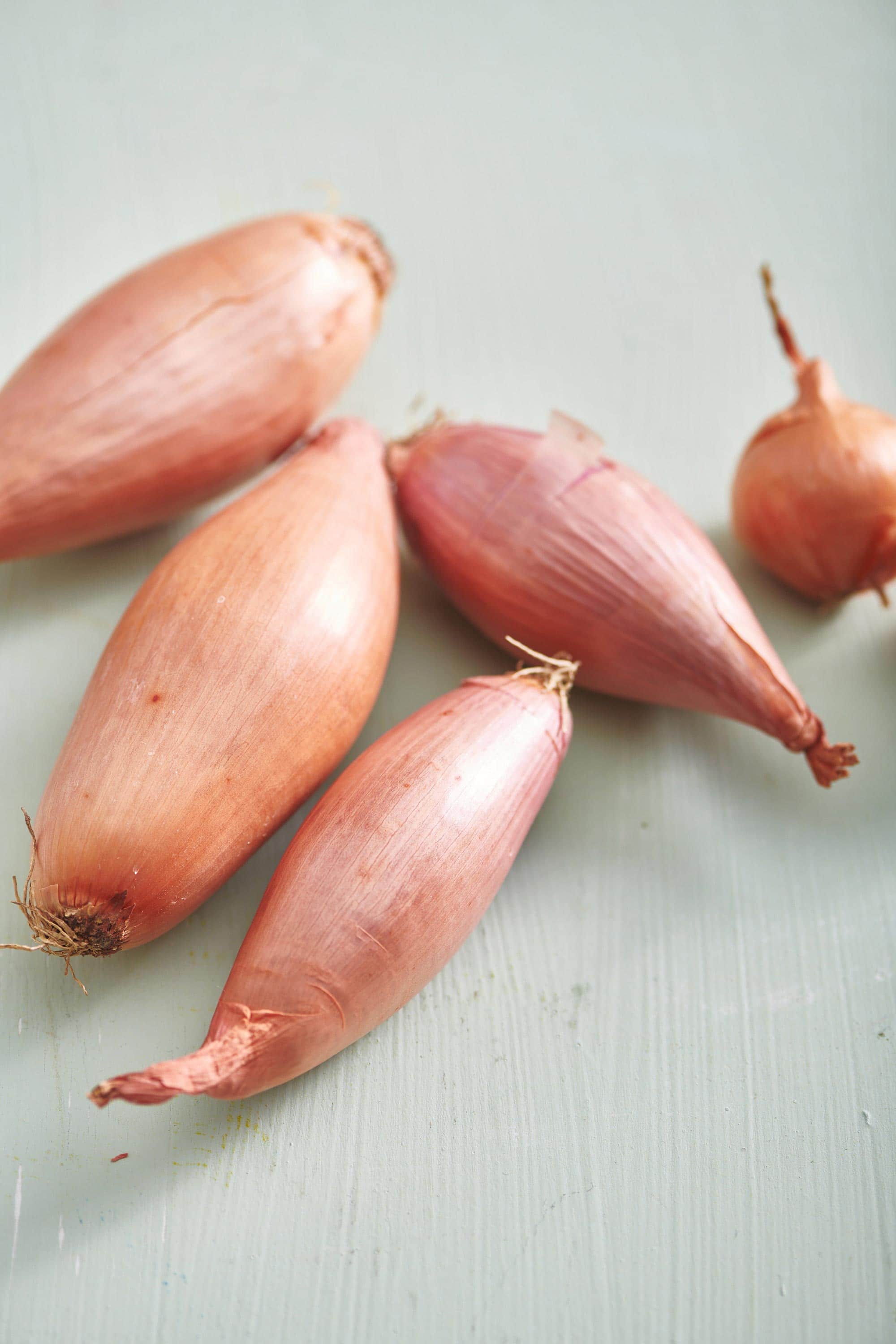
How to Cook with Shallots: Everything you need to know about how to buy, prepare, and cook shallots, one of the most wonderful members of the onion family.
What Are Shallots?
If you want to get technical, shallots are “alliums,” which is actually the Latin word for garlic. So, siblings or cousins of shallots include garlic, leeks, chives, and white, red and yellow onions.
There are two basic types of shallots: traditional French shallots (considered by many to be the “only true shallot,” pictured above) and seed-grown shallots. Shallots can be grown either in a traditional (“French”) way with multiple bulbs on a single plant or from a seed. When grown on a plant, the shallot will have a hard end where it was separated from the bulbous plant and a softer texture when cooked. Seed-grown shallots have a whisker-like root end of the singular bulb. Rounder seed-grown shallots have a firmer texture than French shallots.
Can You Substitute Onions for Shallots in a Recipe?
You can use shallots in pretty much any recipe that you would use onions in, and you can use onions in pretty much any recipe that you calls for shallots. You can replace them in a 1 to 1 ratio.
Shallots may be slightly sweeter or milder than red or yellow onions, so keep that in mind. I think a 1:1 ratio works well, so that means you should use about 3 shallots for every small onion. Yellow onions, milder Vidalia, or other sweet onions are a good substitute for shallots. When using raw shallots in particular, remember that they may be milder than onions.
When a recipe calls for a small amount of onion, like 1/4 cup minced onion, using 1 shallot instead works and saves you from figuring out what to do with the rest of the onion. All in all, shallots and onions are pretty much interchangeable.

What Do Shallots Look Like?
Shallots look like small yellow onions, usually with papery skin that is either deep golden brown or reddish. Regular, seed-grown shallots are fairly round and bulbous, often with two lobes attached by the root. They range in size; the smaller ones are younger and usually milder in taste. Most common in the United States are Jersey shallots, which have a deeper, pink-copper color.
French shallots are most common (as one might expect) in France but also available elsewhere. They may have a slightly grayish tone to the skin and are usually more elongated in shape.
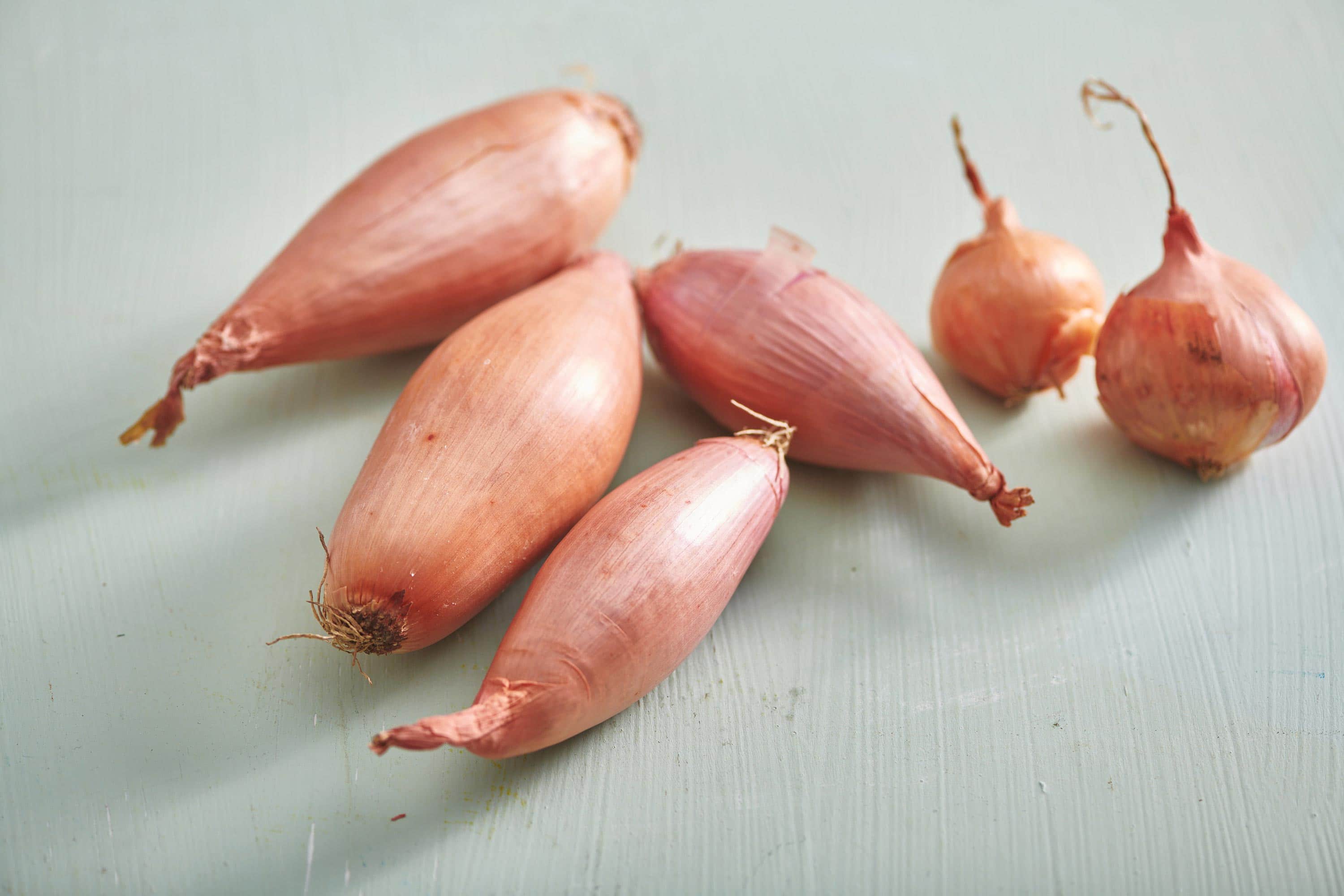
What Do Shallots Taste Like?
Most people think shallots taste milder than onions in general. I find them to be fairly comparable, and by that, I also mean that the intensity varies from shallot to shallot in the same way that the sharpness and strength of onions vary from onion to onion. Yes, in general, the smaller ones are milder, but every shallot has its own personality, so give it a taste to see how strong it is, and make adjustments to the amount used as you see fit.
When cooked, shallots become slightly sweet and quite lush. “Melting” is a term often used with shallots because when they are cooked, they become very soft, and their flavor melds beautifully into dishes.
Not only are shallots delicious, but they are very nutritious as well (though usually they are used in small quantities, so keep in mind that you’re not getting a whole lot of shallot). Shallots are full of fiber, vitamins, minerals, and antioxidants. According to Healthline, they contain flavonoids, an antioxidant that has immune-boosting properties and helps buffer the body against cancer, heart disease, and diabetes.
Finding and Buying Shallots
Shallots are usually available in most grocery stores and farmers markets — wherever onions are sold. You’ll usually be able to find them near the onions and potatoes.
How to Choose Shallots
Select shallots as you would any onion: Pick the nice, firm bulbs with bright, taut skin. Avoid those with damage or bruises. If you want a bolder shallot taste, go for the large ones. If you are looking for a milder flavor, the small shallots are the way to go.
Although shallots reach their peak growing time in late spring/early summer, shallots are generally available in stores year-round.
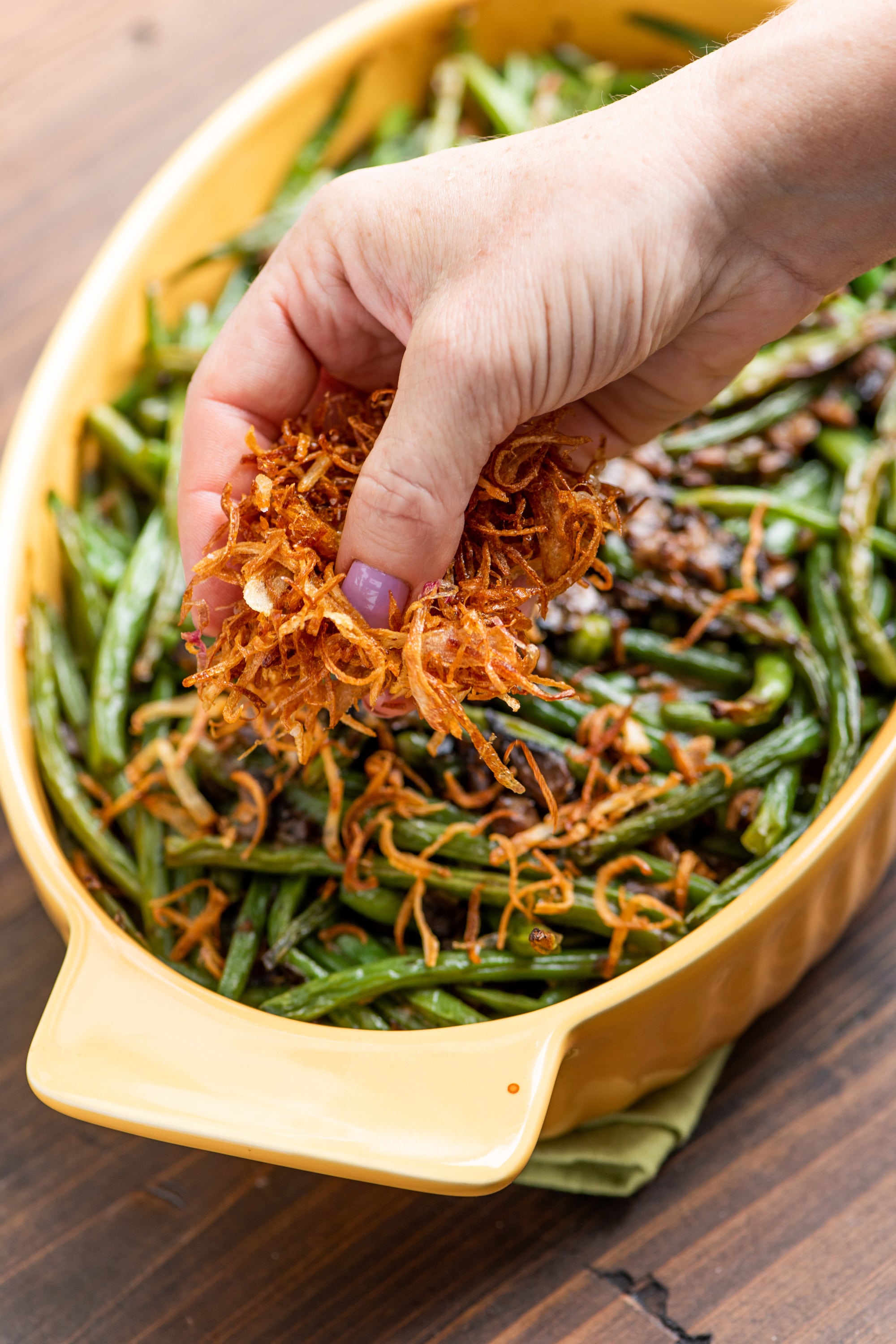
How to Prepare Shallots
Shallots can be prepared in a number of ways, similar to onions.
- Step one is pretty much always removing the skin. Slice the ends of the shallot and peel the skin off.
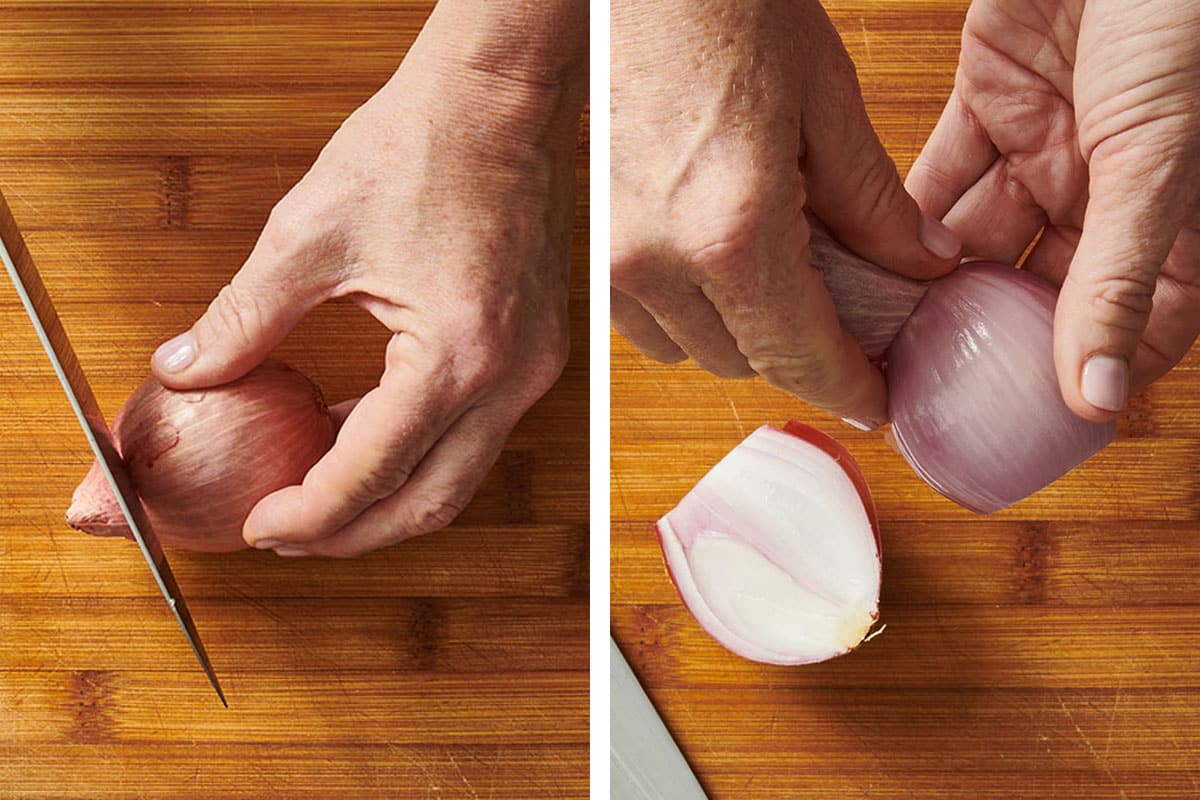
- Depending on your intended use for the shallot, they are then usually thinly sliced or chopped, coarsely or finely. Sometimes, they are left whole for roasting or braising.
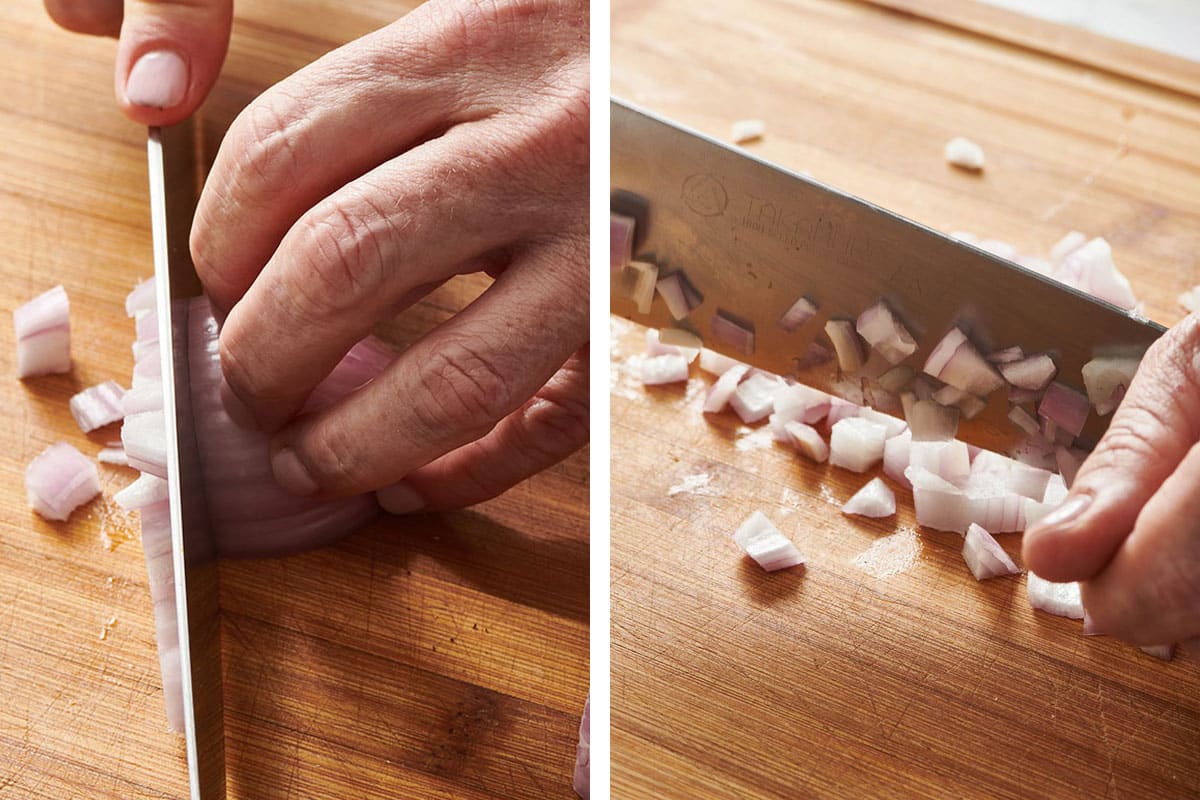
How to Cook With Shallots
Shallots are as versatile as any of their onion siblings. Sliced or chopped raw, they are often added to various vinaigrettes and marinades, salsas, and salads.
Shallots can also be sliced or chopped and sautéed with olive oil/butter and garlic as a base for soups, sauces, casseroles, sautés, and quiches.
Roasting small peeled shallots as part of a sheet of roasted vegetables is really nice. Another way you might see shallots served are sliced and all crisped up in hot oil, then used to top everything from burgers, stews, salads, or pretty much anything else!
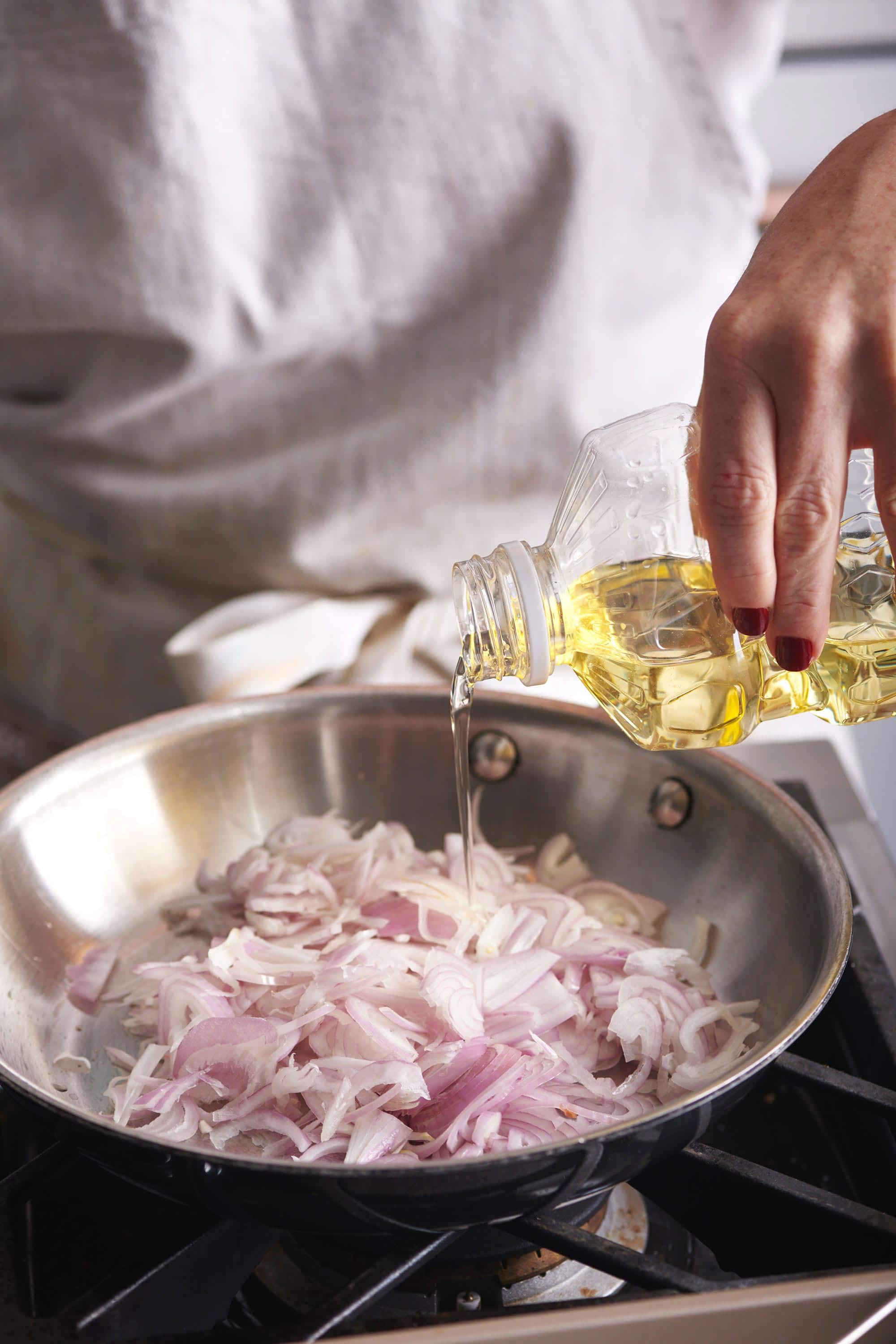
How to Store Shallots
Shallots can be stored in a cool, dry place and will keep for about 1 month. Alternatively, they can also be stored uncovered in the refrigerator for about the same amount of time. If you press on the outside of the shallots and it gives, it’s getting past its prime. Once you peel, slice, or chop a shallot, the raw shallot should be placed in an air-tight container and can stay fresh in your fridge for about 5 days.
9 Shallot Recipes
Here are some recipes that use shallots.
Gluten-Free Crispy Fried Shallots
Green Beans and Mushrooms with Shallots
Farrotto
Fresh Green Bean Casserole
Simple Roasted Asparagus with Shallots and Parmesan
Roasted Lemon-Garlic Boneless Turkey Breast
Best Egg Salad
Lemon Garlic Chicken Marinade
Easy Lemon Butter Sauce
Pin this now to find it later
Pin ItRoast Chicken with Shallots and Potatoes
If you haven’t made roast chicken lately, please fix that this week! And while it’s certainly convenient to avail yourself of a pre-roasted chicken from a supermarket, it’s easy and so enjoyable to make it yourself. And you’ll be rewarded with the rich smell of roasting chicken and the satisfaction of knowing that this comfort food meal is all you. In a perfect world, no one would graduate high school without knowing how to roast a chicken.
This one just needs a salad to pair with it, as there are a generous amount of shallots and potatoes roasted right along with the bird.
Ingredients
- Garlic – In this recipe, you actually don’t need to peel the garlic cloves (which, let’s be honest, is quite a relief).
- Shallots – The star of the show in this post, and super sweet when cooked down with chicken!
- Baby potatoes – Sure, you could do this with cut-up normal-sized potatoes, but baby potatoes are awfully cute.
- Olive oil – A drizzle of olive oil sets up the garlic, shallots, and tiny taters to get nice and crispy in the oven.
- Butter – Rub butter on the skin of the chicken so that it gets nice and crispy, too.
- Rosemary leaves – Fresh, aromatic rosemary brings the flavor of this chicken to the next level.
- Whole chicken
- Lemon – That halved lemon goes inside the chicken, adding flavor to the bird and the pan juices.
Pin this now to find it later
Pin It
Roast Chicken with Shallots and Potatoes
Ingredients
- 2 heads garlic (plus 2 garlic cloves, finely minced)
- 10 shallots (peeled)
- 1 pound tiny potatoes (about 1-inch in diameter)
- 2 tablespoons olive oil
- 4 tablespoons butter (softened)
- 2 teaspoons finely minced fresh rosemary leaves
- 1 whole chicken (3 1/2 to 4 pounds; rinsed and patted dry; remove any giblets and save for another use)
- 1 lemon (halved)
- Kosher salt and freshly ground black pepper (to taste)
Instructions
- Preheat the oven to 400 F.
- Separate the garlic cloves, but do not peel them. In a large bowl, combine the garlic, shallots, and potatoes. Drizzle over the olive oil and toss to combine.
- Combine 2 tablespoons of the butter, 2 garlic cloves, and rosemary in a small bowl. Carefully loosen the skin of the chicken over the breast area and use your hand to work the butter mixture under the skin and over the meat. Place the lemon halves into the cavity of the chicken. Rub the remaining 2 tablespoons of the butter over the skin of the chicken and season with salt and pepper.
- Place the chicken on a wire rack in a roasting pan. Distribute the potatoes, shallots, and garlic around the chicken. Roast for about 50 to 60 minutes, until the skin is browned and crispy and an instant-read thermometer registers 165 F when inserted into the meaty part of the thigh, not touching the bone. Or, when you make a small cut in the thigh, the juices should run clear, not pink.
- Transfer the chicken to a cutting board and let it sit for 10 to 15 minutes so that the juices settle in the meat. Carve the chicken (discard the lemon inside the chicken), then arrange on a serving platter surrounded by the roasted garlic and shallots and serve hot, warm, or at room temperature. The roasted garlic cloves will be soft and mellow in flavor. They are wonderful squeezed out of their paper skins onto toast, bread, or slices of the chicken.
